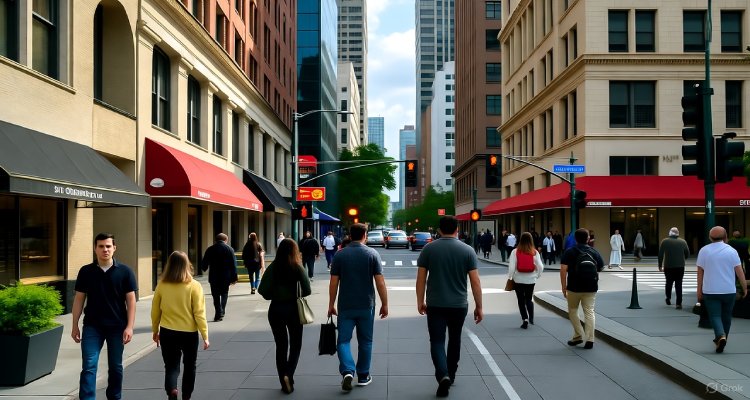The Hidden Economy of People Who Do Nothing

A deep dive into the silent global economy of people who seemingly “do nothing” — from paid companions in Japan to social media “placeholders” redefining modern value and labor.
Introduction: The Paradox of Doing Nothing
In an era obsessed with productivity, a quiet revolution is taking shape — an economy built on people who do, quite literally, nothing. Whether it’s the Japanese “rent-a-person” phenomenon, professional cuddlers, or silent social media influencers who thrive on minimalist content, the idea that inaction can generate income is both puzzling and profound.
Behind this quiet trend lies a complex web of human emotion, social isolation, and redefined value systems that question what work truly means in the 21st century.
Context & Background: From Labor to Leisure, and Now to Presence
Historically, work has been synonymous with effort — sweat, skill, and tangible output. But the digital age blurred those lines. As economies shifted toward service and attention-based models, “presence” itself became a commodity.
In Japan, this shift found a fascinating face in Shoji Morimoto, a man who earns his living by “doing nothing.” For a small fee, Morimoto rents out his time to simply exist alongside clients — sharing a meal, standing in line, or listening silently. He’s not unique anymore; hundreds of others now follow his path, offering companionship without conversation, emotion without engagement.
This phenomenon, however, is not confined to Japan. Across the globe, people are monetizing neutrality — be it live streamers who just sit quietly for hours, “sleep influencers” who earn by resting on camera, or “digital placeholders” who occupy virtual meetings to maintain appearances for busy executives.
Main Developments: How Doing Nothing Became a Business
The hidden economy of inaction thrives on one thing: human attention. In a world overloaded with content, noise, and demands, the value of stillness has skyrocketed.
Consider these emerging markets:
- Rent-a-Friend services: In cities like Tokyo, Seoul, and New York, individuals can now pay to have someone accompany them without emotional expectations.
- Sleep streaming: On Twitch and TikTok, some creators make thousands of dollars by broadcasting themselves sleeping — viewers donate just to watch them exist.
- Corporate stand-ins: Virtual “attendance proxies” are hired by remote workers or executives to appear active in online meetings.
- Therapeutic silence: Life coaches and emotional support professionals are offering “mindful listening sessions,” charging for their calm presence rather than active advice.
According to sociologists, this evolution mirrors our modern anxieties — loneliness, burnout, and the pressure to perform. The economy of doing nothing taps into those emotional voids, monetizing companionship and calm in ways traditional labor never could.
Expert Insight: Redefining Work and Worth
Dr. Laura McPherson, a behavioral economist at the London School of Economics, explains:
“We’ve reached a point where emotional labor and digital presence are valuable currencies. Doing nothing isn’t really about inactivity — it’s about providing a psychological service in a world that’s overstimulated.”
Meanwhile, cultural analyst Hiroshi Tanaka sees this as a cultural mirror:
“In Japan, silence and non-action have long been expressions of mindfulness and respect. The commercialization of doing nothing isn’t laziness — it’s reflection turned into service.”
Social media experts add another layer: the allure of “nothingness” content. Minimalist creators, who post slow, unedited moments of daily life, are attracting millions of followers tired of hyper-productivity culture. Their success signals a growing rebellion against the “hustle” narrative that dominated the 2010s.
Impact & Implications: The Future of Work in a Post-Productivity World
The hidden economy of doing nothing raises profound questions for modern societies:
- What defines work in an age of automation and AI? As machines take over traditional labor, the human economy shifts toward emotion, presence, and authenticity — even in its most passive forms.
- Is this sustainable? While some see it as a form of therapy or emotional support, others fear it may encourage social withdrawal or commodify loneliness.
- Economic and ethical gray zones: With little regulation, “do-nothing” services often blur boundaries between emotional labor, therapy, and exploitation.
Yet, there’s an undeniable demand. In 2024, global “emotional support” industries — including friendship rentals, silent retreats, and mindfulness services — were valued at over $4.2 billion, according to data from lifestyle market analysts. The quiet economy is growing louder each year.
Conclusion: The Quiet Revolution of Human Value
The hidden economy of people who do nothing isn’t about laziness — it’s a reflection of a world yearning for connection, calm, and presence. In the noise of constant alerts, workaholism, and social performance, these professionals offer something scarce: silence without judgment.
As societies grapple with the meaning of value and labor in the digital era, perhaps the greatest act of work — and worth — is learning how to simply be.
Disclaimer: This article is a journalistic exploration of emerging socio-economic trends and does not endorse or promote specific services or practices mentioned.










